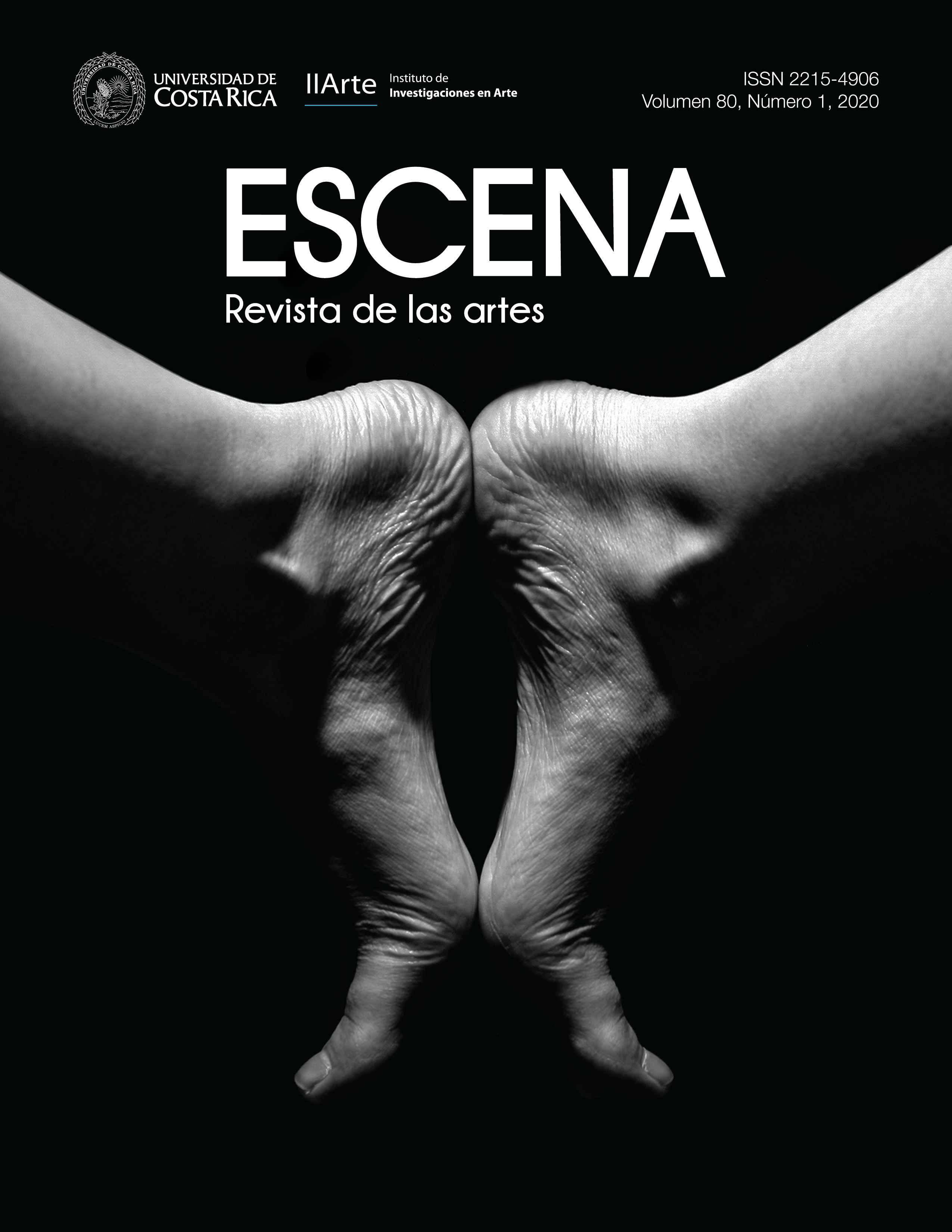Abstract
In the first quarter of the 20th century, two antithetical artistic trends gain importance, both confronting the dominant tendencies of the bourgeois theatre and both pursuing antagonisticnobjectives. One trend defends a necessary re-theatricalization, while the other bets for a radicalnde-theatricalization. Meyerhold positions himself in the first trend, for all his theatrical creationsnand theoretical writings, he formulates a set of fundamental principles and in the understanding ofntheatrical communication for the consideration of the functions of the stage director, and in doing so, he becomes a pioneer in the field of reception aesthetics. We intend to demonstrate such a claim with this paper, written after a review of scientific literature, which also includes his personal
contributions. As a conclusion, we highlight the transcendence of Meyerhold’s proposals to promote a theatre that, based on critical theory, could help to encourage a reception equally critical.



